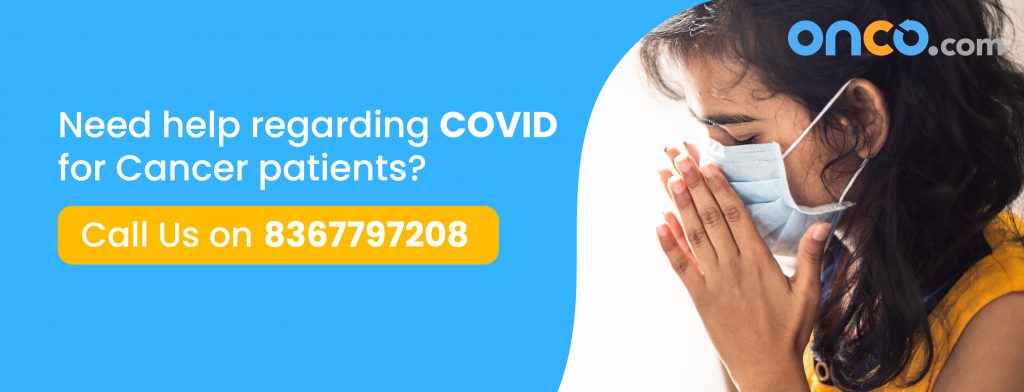Dr Sandeep Jain is a Senior Consultant, Radiation Oncologist, presently a Senior Consultant Radiation Oncologist at Zydus Hospitals, Ahmedabad. In this article, he discusses the impact of COVID-19 on treatment decisions in head and neck cancers.
Treatment decisions in head neck cancer patients depend on whether the role of radiation treatment is primary (radical setting) or additional (adjuvant setting) or for only symptom relief (palliative setting). The treatment plan should be same for radical settings as, without the COVID-19 times, a minor modification for adjuvant setting and alternatives should be explored for the palliative setting.
What are the overall precautions to be taken by head and neck cancer patients undergoing treatment right now?
In addition to precautions taken during the cancer treatment, patients should take all general precautions like social distancing and hand washing as per general recommendations to prevent COVID-19. The diet should be strictly followed by high protein to maintain good immunity.
We should be vigilant about COVID-19 related symptoms like sore throat and cough and not disregard them as expected side effects of radiation therapy. Thus, if symptoms persist and new symptoms like breathlessness and fever develops we should get tested at the earliest. On the other hand, aspiration can also present with these symptoms. So Radiotherapy should not be withheld only on suspicion.
Stage-wise guidance for head neck cancer treatment during COVID-19 pandemic
Advance stage cancers (III, IV) usually requires 2 or 3 modalities of treatment, however in early stage when only single modality is required eg. both options like surgery and Radio therapy in Early Larynx should be discussed.
In cases when the indication of adjuvant RT is borderline with only 1 adverse factor in pathology report, observation may be discussed with the patient.
Who can postpone treatment for head neck cancer? If yes, then for how long can we delay further treatment?
As discussed in introduction, radical Radiotherapy eg. in laryngeal and pharyngeal cancers when no surgery is been done should not be delayed.
For adjuvant treatment, ideal is to start in 4-6 weeks after surgery. However, it can be postponed by 2 weeks with a maximum of 8 weeks.
For palliative treatment, other options like palliative oral or metronomic chemotherapy can be explored.
Precautions for patients undergoing chemotherapy or radiotherapy?
We should be vigilant about COVID-19 related symptoms like sore throat and cough and not disregard them as expected side effects of radiation therapy. Thus, if symptoms persists and new symptoms like breathlessness and fever develops we should get tested at the earliest. On the other hand, aspiration can also present with these symptoms. So Radiotherapy should not be withhold only on suspicion.
Can Radiotherapy be avoided?
In addition to discussion in previous question, some situations when there is option of observation with close follow-up eg. early stage buccal mucosa after surgery it should be discussed with treating physician. Cases when the indication of Radiotherapy is borderline with only 1 adverse factor in pathology report, this may be considered.
Can Radiotherapy be delayed?
For adjuvant treatment(post-surgery), ideal is to start in 4-6 weeks after surgery. However, it can be postponed by 2 weeks with a maximum of 8 weeks.
What are the risks of continuing treatment and risks of withholding treatment of head neck cancer in the present situation?
If the treatment is withhold or defaulted the effectiveness of future treatment and subsequent outcomes is compromised. The pros and cons of that should be clearly discussed with the treating physician.
Is there a possibility to reduce duration of treatment?
The short duration treatments called hypo fractionated RT can be given in Larynx cancers. However, in radiotherapy planning with the method of simultaneous integrated boost (SIB) the treatment duration can be shortened if the volume of disease is less.
Is there a change in strategy of concurrent chemotherapy?
Concurrent chemotherapy adds to the side effects and complications of radiation therapy. Thus, if the indication of adding concurrent chemotherapy is minor it should be reconsidered especially in elderly patients with comorbid conditions. If these group of patients are admitted for treatment related side effects, they will be having additional risk of contracting COVID-19 in hospital.
Are there any substitute if surgery is not feasible due to logistics?
Some laryngo-pharyngeal cancer, neoadjuvant chemotherapy can be offered to postpone surgery. However, that is not without risk to getting admitted and exposure in hospital.
What if one of the treating team staff is found positive?
Quarantine for 14 days for contacts of positive case is recommended. The patient should enquire from hospital what are the additional precautions they are taking to keep patients safe and prevent such a situation.


